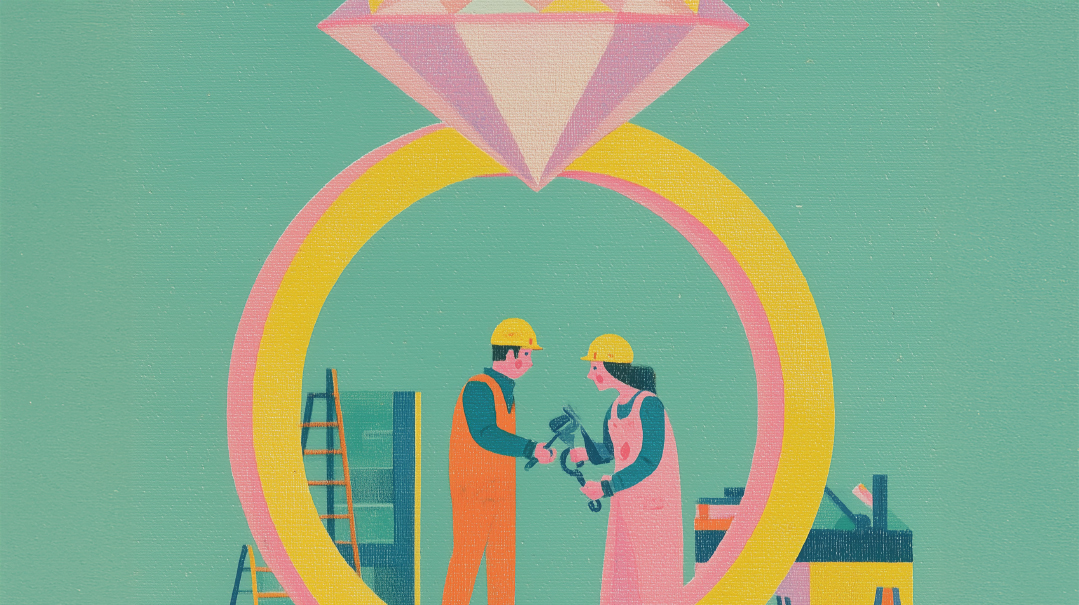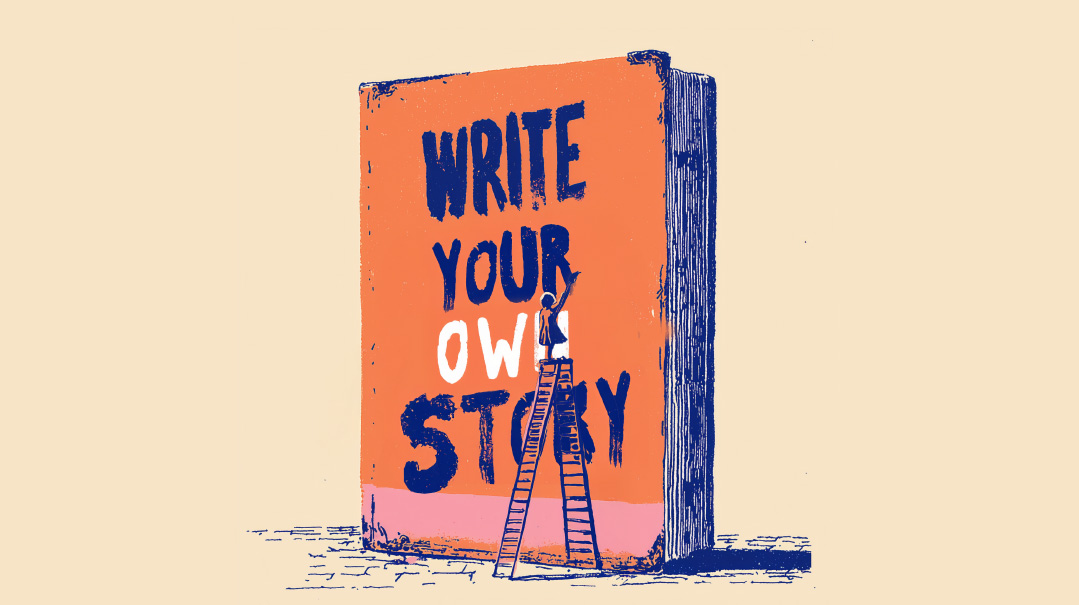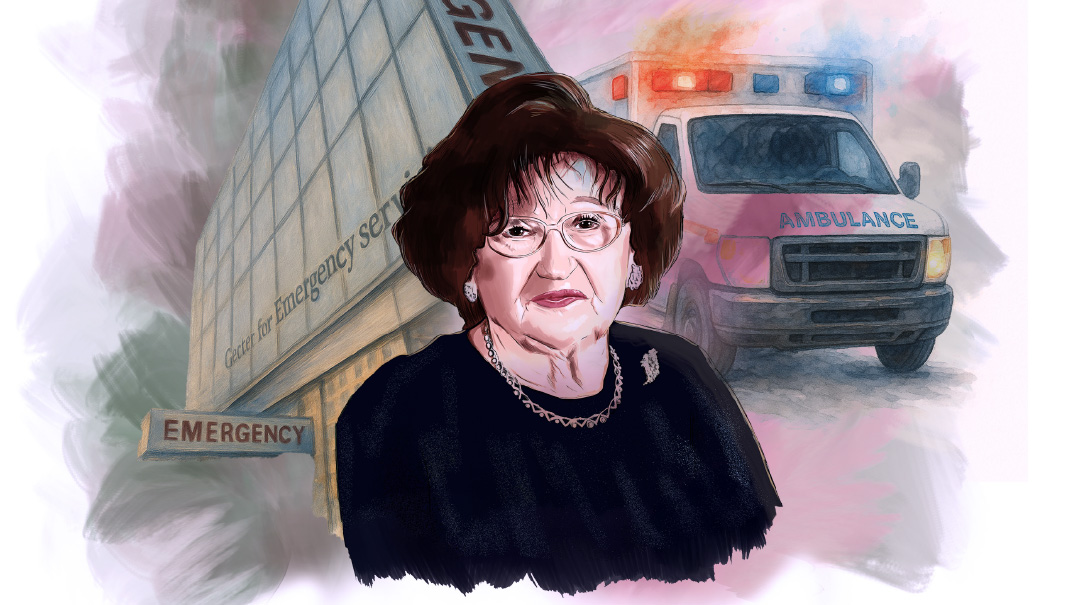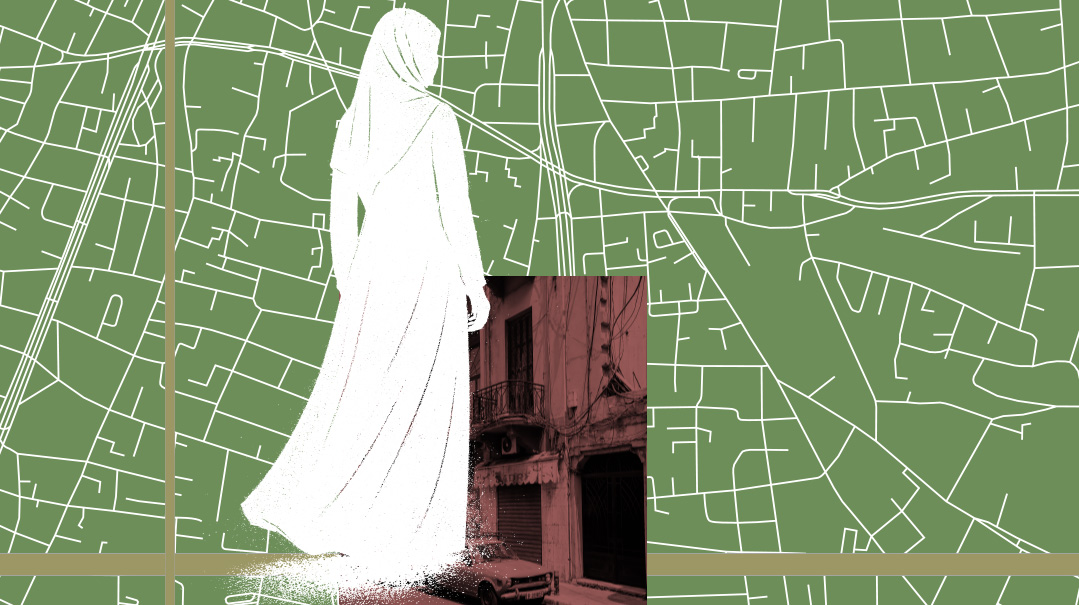Riddled with regret
| July 15, 2020If we can move beyond the pain of regret and channel remorse properly, it can become a transformative experience

When Shani dated her future husband, she had a feeling something wasn’t right. “There was a feeling of apprehension about our relationship that I couldn’t put my finger on,” she remembers. She spoke to several mentors about her fears and they all assured her that nerves were normal. So she went ahead and got engaged.
Not long after the wedding, Shani realized that her feelings of unease did have a basis. By that point, she was entangled in a complicated, unhappy relationship with a husband whose deep emotional scars hampered his ability to cultivate a wholesome relationship.
Shani’s story has a happy ending — she succeeded in navigating their challenging relationship toward a healthier place — but she remembers the regret that stung her during the first few rocky years.
“I constantly questioned my earlier decision and berated myself for the situation I was in,” says Shani. “I blamed myself for the unforgivable mistake of marrying the wrong man.”
While misgivings following a mistake is one form of regret, the biting pangs of one’s conscience after missing a once-in-a-lifetime opportunity can be equally intense and last for weeks, months, or an entire lifetime.
As a newlywed, Sarah was relieved to discover that her new mother-in-law gave her emotional space and didn’t push for a strong relationship. “I’m more reserved by nature and don’t naturally reach out to others,” says Sarah. But when her mother-in-law got sick and died a few years later at a premature age, Sarah suddenly realized that she’d missed a golden opportunity.
“I wish I would’ve made a little effort to develop a stronger relationship,” says Sarah. “My mother-in-law was such a warm, nonjudgmental, and accepting person. I think we both would’ve gained so much from a deeper relationship.”
Leah spent decades ruminating over her life’s biggest regret — staying put in America instead of moving to Israel. She vividly remembers when the idea of relocating was first suggested to her by a friend, back when Leah and her husband were newlyweds and recent baalei teshuvah. Moving to Eretz Yisrael, the friend suggested, could help the young couple strengthen their commitment to and knowledge of Yiddishkeit.
“After discussing the idea with my husband, we decided that moving would be an impractical and irresponsible thing to do,” says Leah. “We were so new to Yiddishkeit at that time, we didn’t even think of asking a sh’eilah!”
Today — 20 years later — doubts still plague Leah’s mind. “I sometimes have that niggling feeling of remorse for not picking up and moving to Eretz Yisrael. I wonder how my learning experience there would have impacted my perspective on life. Would I have been able to raise my children differently if we’d have lived there?”
Wake Up Call
Whether you feel regret because of something you did do or neglected to do, it serves a distinct purpose. “Regret tells our mind or body that something isn’t right,” says social worker Lara Bolsom, LCSW. “Something wrong was done that needs repair.” The sting of regret is what wakes us up to the problem — and the persistent throb of guilt is what motivates us to change the harmful behavior and refocus our lives.
“Regret, like all emotions Hashem implanted in us, is an important, useful mechanism,” says Rabbi A. Shur, a consultant who specializes in family and business relationships. Regret can help us recognize the transience of our lives, become aware of our deepest values, and impel us to live in accordance with those values.
“But, like all emotions, the mechanism of regret can be wrongly channeled,” says Rabbi Shur. “High-voltage emotions can especially create a lot of damage.”
When in the throes of an intense, uncomfortable emotion — especially when we feel responsible for the emotion we’re experiencing — it’s difficult to view the situation with level-headed logic. We might think we’re approaching our regret with constructive self-examination, when really, we’re swamping ourselves in self-recrimination and unwarranted remorse.
When can some constructive self-examination be appropriate and when is it unwarranted? How do we distinguish between healthy internal scrutiny and the insidious type of introspection that we sometimes slip into?
The simplest way to gauge the usefulness of remorse is to look at how it’s impacting our lives. Healthy management of regret often leads to repair, self-healing, and growth, whereas harmful regret prevents us from re-engaging with life and moving forward.
Therapist Aviva Keren-Barnett points out that a healthy mindset is rooted in the present-tense and motivates us to repair mistakes and move forward. Unhealthy feelings, by contrast, glue us to the past and impede forward thinking. “They lead us to depressive feelings and don’t us let put one foot in front of the other,” says Aviva.
In a Psychology Today article, psychologist Dr. Juliana Brines notes that it’s common to get so stuck in haranguing our past selves that we forget to consider and have compassion on our future selves.
Shani, who felt guilty for a “bad” marriage choice, used this self-test method to judge whether her own feelings of remorse were beneficial. “I wanted the marriage to work, so I understood that I needed to rethink where my regret was leading me,” she shares. “I did a cheshbon hanefesh and asked myself: ‘Where is this regret taking me? What constructive purpose does it serve?’” When Shani saw that her guilt was harming her relationship, she realized how crucial it was to let go of it.
Reframing Regret
As we work through the painful feelings of regret, it’s easy to spiral into negative thinking. There’s also a tendency to put ourselves down with damaging self-talk. This, says Lara, is a big mistake. “When harmful narratives exist in our mind, they negatively impact how we view ourselves, the world, and how we relate to others.” She stresses the importance of reprocessing and reframing regrets in order to view them with a more realistic, positive, and forward-thinking perspective.
As a starting point for reframing regret, it helps to rethink whether self-criticism is warranted in the first place. “We might have made a decision in good faith; the consequences are often out of our control and not necessarily something we should feel guilty about,” says Rabbi Shur.
Shani says there’s a comfort in knowing that, from a hashkafic perspective, while we’re responsible for the decisions we make, the outcome is often not in our hands. “While dating my future spouse, I know that I did my best to make the right decision,” says Shani. “I consulted with those I trusted and davened to Hashem to lead me in the right direction. Looking back, I truly believe that self-criticism for the outcome is unwarranted; I did my part.”
Dr. Brines says that hindsight bias — the tendency to display bias toward past decisions based on what occurred following the decision — is often at play when we feel remorse. In hindsight, we tend to disregard the circumstances and reasons that lead us to make a decision. We often ignore the fact that our decisions were logical and reasonable, given the information and resources available at that time.
Instead of blaming ourselves, Dr. Brines advises practicing self-compassion and asking ourselves: “How was my decision logical and understandable given the information available at the time?”
This approach helped Leah grapple with the would-haves and could-haves of relocating to Eretz Yisrael. Though she says that if she’d be able to turn back the clock, she might behave differently, she acknowledges that her decision was reasonable given her decision-making abilities at the time.
A common characteristic of unreasonable remorse is that it’s based on wishful thinking, and not grounded in reality. This occurs because regret usually focuses on two extremes — “the negatives of what did happen, and the positives of what might have been,” notes Dr. Brines. Because of this tendency, she suggests flipping the equation: Focus on the positives of what did happen, and explore what negatives could have occurred.
Despite her lingering regret, Leah admits that the assumption that moving to Eretz Yisrael would’ve been spirituality advantageous is only that — an educated assumption. “Maybe staying put and learning about Yiddishkeit at our own pace and in our comfort zone was better for us,” says Leah, whose husband eventually enrolled in an excellent learning program in his hometown. “Who knows? Maybe the learning curve that living a chareidi lifestyle in Eretz Yisrael would’ve entailed would have been too much for us.”
Another way to reframe regret is to replace “why” questions with “what” questions. Instead of dwelling on the futile ruminations of “Why did I do this?” or “Why did things turn out this way?” stick with future-focused questions such as, “What can this experience teach me?” “What does it reveal to me about myself?” “What can I learn from it?” How can I grow from it?”
One of the biggest mistakes Shani made after her marriage was getting stuck in the “why” perspective, she shares. It caused her to neglect the more proactive question she should have been asking herself: What can I do about it now? How can I grow from this situation? Aviva echoes this sentiment by reminding clients who are stuck in negative self-talk to ask themselves: Where does my control lie today? What does Hashem want from me now?
Growth Mindset
You can’t fully move beyond regret without “making repairs,” a process that’s similar to the teshuvah process: acknowledging mistakes and accepting responsibility for them, disengaging from harmful behavior, apologizing to ourselves or others, and doing what we can to right wrongs.
“Past regrets don’t need to dictate who you are and who you’ll become,” says Aviva. “The past — even past mistakes — becomes meaningful when it helps us move forward.”
It’s important to clarify that some regret will require mostly reframing — and only a little repair — to move beyond. This is especially the case with unreasonable remorse, which is based on wishful thinking and isn’t grounded in reality. In other instances, more repair might be necessary.
Unfortunately, we can’t always undo wrongs. But Lara says that there’s almost no instance where nothing can be done to reprocess regrets and take corrective action. For example, Lara helps clients reprocess regrets concerning a departed loved one by encouraging them to write letters to the person who passed away.
Even if we had let an opportunity slip by that’s no longer available, we can still take advantage of the here and now. Dr. Brines encourages people to do whatever is still realistically possible to live up to their dreams. “If you regret not pursuing a dream of becoming a professional musician, maybe there are still opportunities to take music classes,” she says.
Though Sarah can obviously no longer work on improving her relationship with her mother-in-law, she views her regret as an awakening experience. “I suddenly recognized the transient nature and value of relationships in a way I never did before,” says Sarah. “I realized that I can work on developing closer relationships with those I love who are still with me, like my own mother.”
Thankful for being given this learning opportunity, Sarah now makes an effort to call her mother every Erev Shabbos and Motzaei Shabbos. “Even though I’m naturally more reserved, ever since my mother-in-law died, I started reaching out more to my distant circle of friends and coworkers and taking interest in their lives,” says Sarah.
For Leah, her remorse over not relocating helped her realize the long-term impact of decision-making. “I learned to think things through more carefully; to look beyond the here and the now and give decisions a little more thought,” says Leah.
Acknowledging that we’re human and that all people make mistakes, says Lara, can be the beginning of the journey toward healing lifelong guilt. “Making mistakes is a part of life,” agrees Sarah. “Some get stuck in their past, and some learn and grow from it. How we relate to our past often determines the type of person we become.”
7 END-OF-LIFE REGRETS
When faced with death, people often express regret about the way they chose to live.
Here are seven of the most common end-of-life regrets:
- “I wish I would’ve lived a life that was true to myself — and not the life others wanted me to live.” At the end of life, one suddenly come to terms with the one person who should’ve influenced him the most during his life: himself.
- “I wish I would’ve followed my dreams.” It’s common for people to look back and realize that they didn’t live up to half of their life’s goals and dreams.
- “I wish I hadn’t spent so much time at the office.” Work can be so addictive that it’s easy to get stuck on the “career treadmill” while neglecting the most valuable things in life.
- “I wish I’d stayed connected with my friends and family.” We don’t value relationships enough — until we realize that the opportunity to cultivate them is gone.
- “I wish I would’ve been happier.” When the dying look back, they suddenly realize that happiness is a choice. Days that were filled with petty disputes, anger, and bitterness could have been replaced with the simple gratitude and joy of living.
- “I wish I’d lived in the present.” We spend so much of our time worrying about the future, we forget to appreciate the here and now.
- “I wish I hadn’t taken life for granted.” We often forget the priceless treasure called “life” until we realize that it won’t last forever.
(Originally featured in Family First, Issue 701)
Oops! We could not locate your form.













